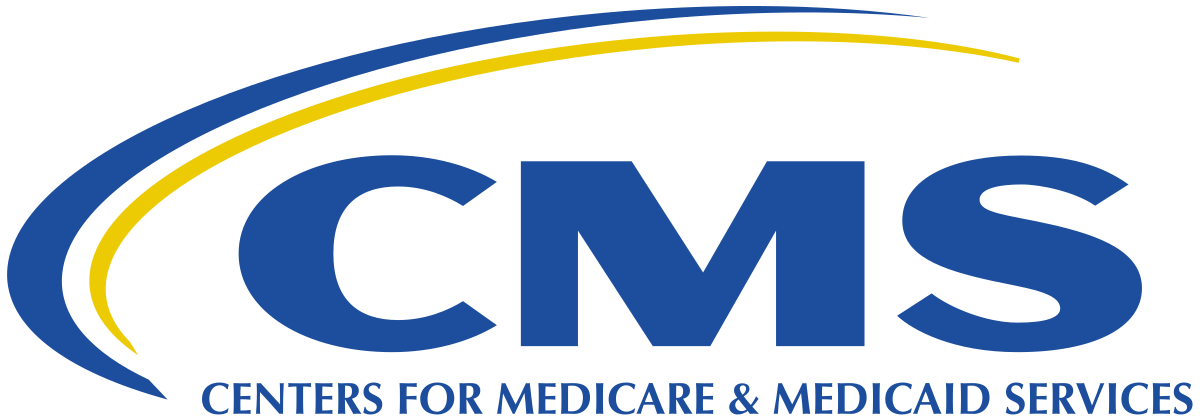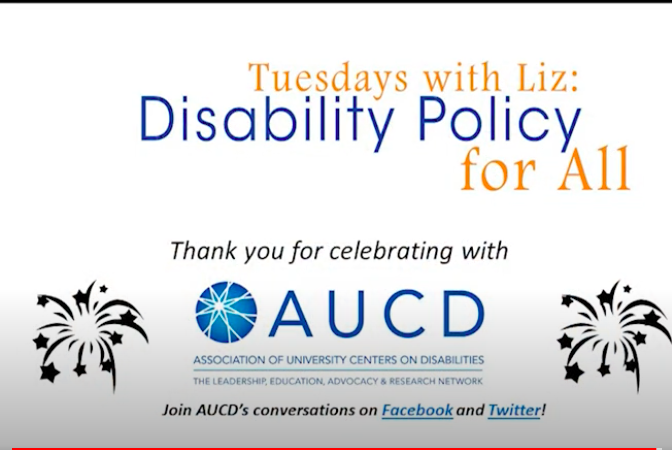|
 Action Alert: COVID-19 Action Alert: COVID-19
Congress is expected to move an additional COVID-19 relief package starting today. There is a real risk that human needs, including those of people with disabilities, will not be included in this package! The voices of constituents from every state are needed to ensure critical actions are taken. AUCD encourages you to reach out to your Senators and ask that COVID-19 relief legislation include Medicaid funding for home- and community-based services for people with disabilities and Special Education funding to meet the emergency needs of students and young children with disabilities and their families, schools, and service providers.
Plain Language:
- For the next two weeks, Congress will be working on a new bill to support people during COVID-19. It is possible that Congress will not spend any money to help people with disabilities and the people who support them.
What this means to you:
-
Congress needs to hear from you about what people with disabilities need during COVID-19. You can call or email Congress to tell them about how COVID-19 has changed your life, for example your housing, services, health, school, or work. Every call and email matters.
Action Steps:
- Read the full Action Alert from AUCD for more details on how to contact your members of Congress and what to say when you do.
- Email or call the Capitol Switchboard at (202) 224-3121 (voice) or (202) 224-3091(tty) and ask to be connected to your Senators and Representatives.
- You can use this easy tool to find your members of Congress.
- Share AUCD's top priorities and your stories about the impact of COVID-19 on your life with your members of Congress.
 Fiscal Year 2021 Fiscal Year 2021
The House Appropriations Committee passed a fiscal year 2021 (FY21) funding bill for Labor, Health and Human Services, Education, and other related agencies. The bill, which increases overall funding by $2.4 billion above the fiscal year 2020 level, stands in contrast to President Trump’s significantly smaller budget request. Highlights of the bill particularly relevant to people with disabilities include increases in funding for programs to improve maternal and child health, Medicare and Medicaid services, Home and Community-based Supportive Services (HCBS), and Special Education. The legislation will next be discussed and voted on by the full House of Representatives, date to be determined.
|
|
FY 2020 Funding
|
AUCD FY 21 Ask
|
House Committee FY21
|
|
LENDs
|
$35,245,000
|
$36,245,000
|
$36,245,000
|
|
UCEDDs
|
$41,619,000
|
$43,500,000
|
$41,619,000
|
|
TPSID
|
$11,800,000
|
$12,300,000
|
$12,300,000
|
|
PNS
|
$12,250,000
|
$14,000,000
|
$12,250,000
|
|
NICHD
|
$1,556,879,000
|
$1,600,000,000
|
$1,670,455,000
|
The Senate has not yet released funding legislation for FY21.
Plain Language:
- Congress has started working on next year's budgets for the government. They are deciding how much money to spend on different programs that support education, housing, health, and job training.
Action Steps:
 Home- and Community-Based Setting Services Home- and Community-Based Setting Services
The Center for Medicare and Medicaid Services (CMS) sent a letter to State Medicaid Directors alerting them to an additional one-year extension on the deadline to complete implementation of activities and demonstrate compliance with the Home and Community-Based Services (HCBS) Settings Rule. The Rule, which establishes basic protections for older adults and people with disabilities who receive Medicaid-funded HCBS, had previously been granted a deadline extension from 2017 to 2022. The new deadline is now March 17, 2023. CMS cited the ongoing COVID-19 pandemic and the resulting social distancing measures, economic fallout, and underlying health vulnerabilities of older adults and people with disabilities as reasons for the delay. The HCBS Advocacy Coalition, of which the AUCD is a member, issued a response disagreeing with the CMS decision, arguing that the prevalence of COVID-19 cases in congregant settings such as nursing home should accelerate the move towards HCBS settings rather than slow the transition.
Plain Language:
- Because of COVID, the federal government is giving states more time to follow rules to support home- and community-based services for people with disabilities.
What it means to you:
- States might slow down work to ensure protections under HCBS. The delay could be bad for many people with disabilities who want to be a part of their communities and use Medicaid for their home- and community-based services.
Action Steps:
- Read the letter and revised FAQ from the Department of Health and Human Services (DHHS) that announces the HCBS Settings Rule extension.
- Technical assistance and support for states from the DHHS remains available.
- Read the response from the HCBS Advocacy Coalition, of which AUCD is a part.
- Check out this Plain Language guide to learn more about HCBS and the HCBS Settings Rule from the Autistic Self Advocacy Network.
 Voting Voting
AUCD is excited to join partners across the disability community working to increase the political power of people with disabilities by sharing resources and getting folks registered to vote.
AUCD Resources to share and support your efforts:
- Fact sheet on Voting
- Fact sheet on Voting By Mail
- 2020 Registration deadlines by State
Action Steps:
- Register to vote or confirm you are registered
- Share with people you know the deadline to register in their state; ask them to register or confirm they are registered
Voting Resources from Disability Partners:
 AUCD Policy Talk AUCD Policy Talk
John Andresen, a graduate research assistant at the Indiana Institute on Disability and Community and a PhD student in Special Education at Indiana University–Bloomington, calls for more research on the connection between postsecondary education and employment outcomes for people with disabilities on this week’s #AUCDPolicyTalk.
Action Steps:
 Tuesdays with Liz Tuesdays with Liz
Join us with past guests of the show reflecting on the Americans with Disabilities Act (ADA) in celebration of its 30th anniversary!

Guests, in order of appearance:
Deborah Spitalnik, New Jersey LEND
Aaron Combs, Walmart
Neil Romano, National Disability Council (NDC)
Rachel Mueller, Advocate
Shelly Christensen, Author
Senator Tammy Duckworth, Illinois
Tawara Goode, Washington, DC UCEDD
|
